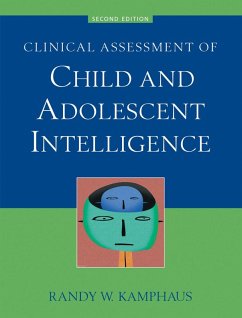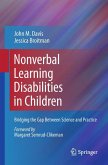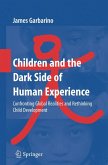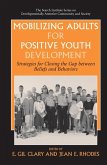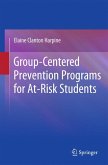In addition, Clinical Assessment of Child and Adolescent Intelligence:
- Stresses the importance of the interpretive process over the value of specific tests.
- Fosters a deeper understanding of the intelligence construct.
- Emphasizes learning by example, using valuable case studies and vignettes designed to provide students with concrete models to emulate.
This edition covers all facets of intelligence testing, including detailed explanations of test interpretation, theory, research, and the full-range of testing options for preschoolers through adult clients. New chapters have been introduced on neuropsychological approaches, adolescent and adult intelligence, including coverage of WAIS-III and KAIT, and achievement and intelligence screeners have been added. And although designed primarily as a text for beginning graduate students, the book is also useful as a "refresher" for clinicians who are looking for updated assessment information.
Dieser Download kann aus rechtlichen Gründen nur mit Rechnungsadresse in A, B, BG, CY, CZ, D, DK, EW, E, FIN, F, GR, HR, H, IRL, I, LT, L, LR, M, NL, PL, P, R, S, SLO, SK ausgeliefert werden.

